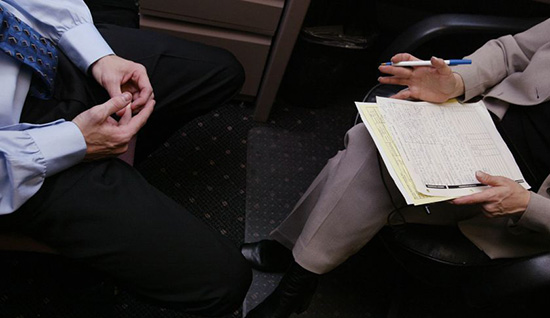
|
经营一家公司,要经常相信自己的直觉。创业者每天甚至每个小时都要做出决策。理性且迅速地解决各种问题,是创业者的职责所在。多数人会认为,理性源自经验,而迅速反应则取决于创业者的经营风格和个性。两者同时出现,便形成了所谓的“直觉”。从商业领袖到初级员工,每个人都会利用直觉。它涵盖了商业和生活的方方面面。 但直觉并不总是能指引我们做出正确的决定,许多人或许都曾有过这样的经历。那么,我们如何确定在什么时候相信直觉?根据我的经历,我总结出两种解决办法。第一种方法是,根据过往积累的知识,做出艰难的商业决策。例如,我几乎总是努力地回忆此前出现的类似情形,我会问自己:“我以前是否经历过类似情况?”如果你能找到之前做过的类似决定,这些决定就有助于你正确看待当前情势。我发现,问题的相似度越高,我便对它越熟悉,这意味着我的直觉便会越强烈。正常情况下,我随后就会相信自己的直觉——这种感觉之所以会出现,是因为我的潜意识正在提醒我,我此前做过类似的决定。 如果我的直觉反应是负面的,我会让自己后退几步,弄清楚出现这种反应的原因。我会从更理性的角度考虑折衷措施,以及这样做的好处和负面结果。我会尽量从逻辑方面弄清楚,为什么这种情况会令我产生负面反应。或许,我对折衷措施感到不安,或者我做出的决定不符合我的世界观。我会尽量明确自己的直觉情绪,并以此为出发点进行决策。有时候,出于对未知的和不熟悉的事物的恐惧,当有必要修改决策时,直觉也会出现。然而,在这个变幻莫测的商业世界中,改变通常都是正确的决定。你必须将自己的负面情绪进行分类排序,弄清楚如何区分自己希望相信的直觉,以及因为害怕突破舒适区所产生的直觉。 在尝试驾驭你的直觉时,自我反省和逻辑思考至关重要,尤其是在需要做出艰难的商业决策的时候,因为这些决策将影响公司的发展轨迹。(财富中文网) 本文作者亚历山大·戈尔茨坦为芝加哥技术型能源零售商Eligo Energy的创始人兼CEO。他是一位连续创业者和投资人,致力于技术和大数据分析在新行业内的应用。在创建Eligo Energy之前,亚历山大曾参与创建Pangea Properties和Enova International。 译者:刘进龙/汪皓 审校:任文科 |
Trusting your gut more often than not comes with the territory of running a business. Decisions often need to be made daily, sometimes even hourly, and it’s your job to be able to solve these problems both rationally and quickly. Most would argue that rationale stems from experience, while being quick on your feet depends on your business style and personality. Where the two seem to meet creates the infamous “gut feeling.” From business leaders to junior staff members, the gut feeling is universal. It speaks all languages and crosses all aspects of business and life. But, as we have all probably experienced, gut feelings don’t always lead us to the right decision. So how do you know when to trust them? I’ve learnedthere are two ways to tackle this. The first has always been to approach tough business decisions with knowledge of the past. For example, I almost always try to recount a time in my life I’ve been in a parallel situation by asking myself, “Have I ever experienced anything similar to this?” If you can find similarities in past decisions you’ve made, it can help put your current circumstance into perspective. I have found that the more similar a situation is, the more familiar I am with it, meaning my gut feeling tends to be stronger. Normally, I go with my gut then—the feeling is there because my subconscious is trying to remind me that I’ve done this before. When my gut reaction is negative, I make sure to take steps back to understand why. I consider the tradeoffs, the benefits, and the negative outcomes from a more rational point of view. Logistically, I try to understand why I’m associating something with such negativity. Maybe I’m uncomfortable with the tradeoffs, or maybe the decision isn’t consistent with my worldview. I try to pinpoint the feeling and decide from there. Sometimes, gut feelings can appear when a decision warrants change, stemming from the fear of the unknown and less familiar. Yet, change is often the right decision, especially when dealing with the ever–changing world of business. It is imperative to sort your negative feelings in orderso you know how to differentiate between a gut feeling you want to stick with and one that just stems from being afraid to break out of your comfort zone. Self-reflection and logistical thinking are key when trying to navigate gut feelings, especially when making tough business decisions that will influence your business’s trajectory. Alexander Goldstein is founder and CEO of Eligo Energy, a technology-based energy retailer in Chicago. He is a serial entrepreneur and investor focused on applications of technology and big data analytics to new industries. Prior to starting Eligo Energy, Alexander cofounded Pangea Properties and Enova International. |






